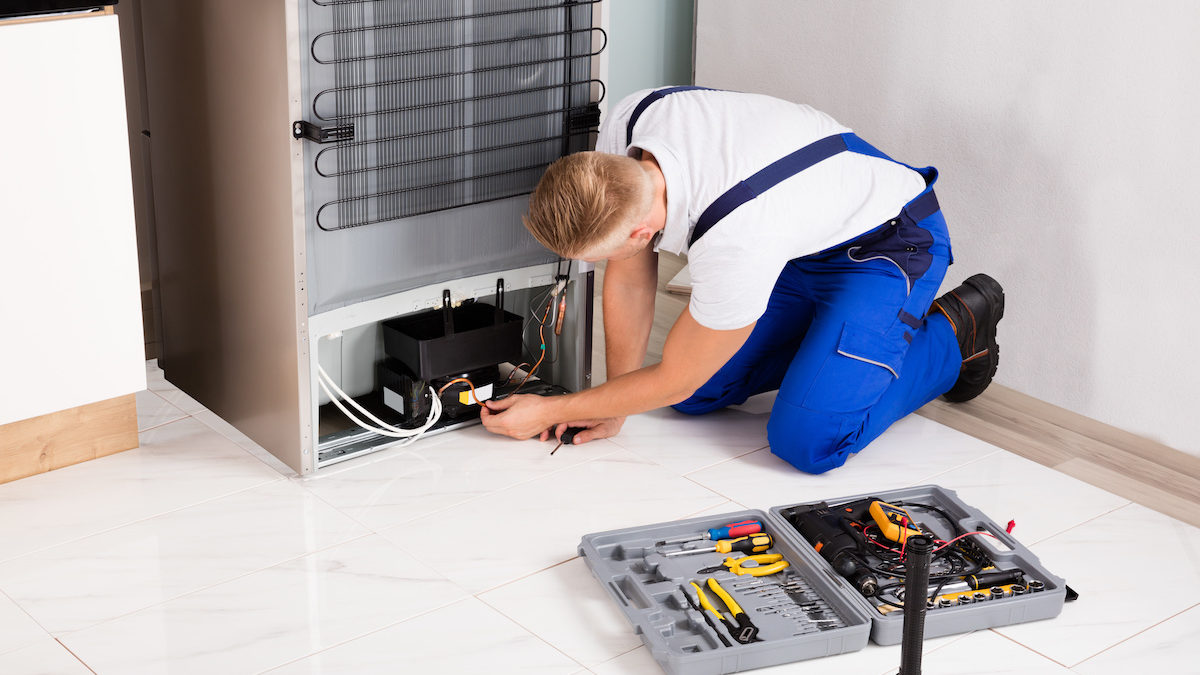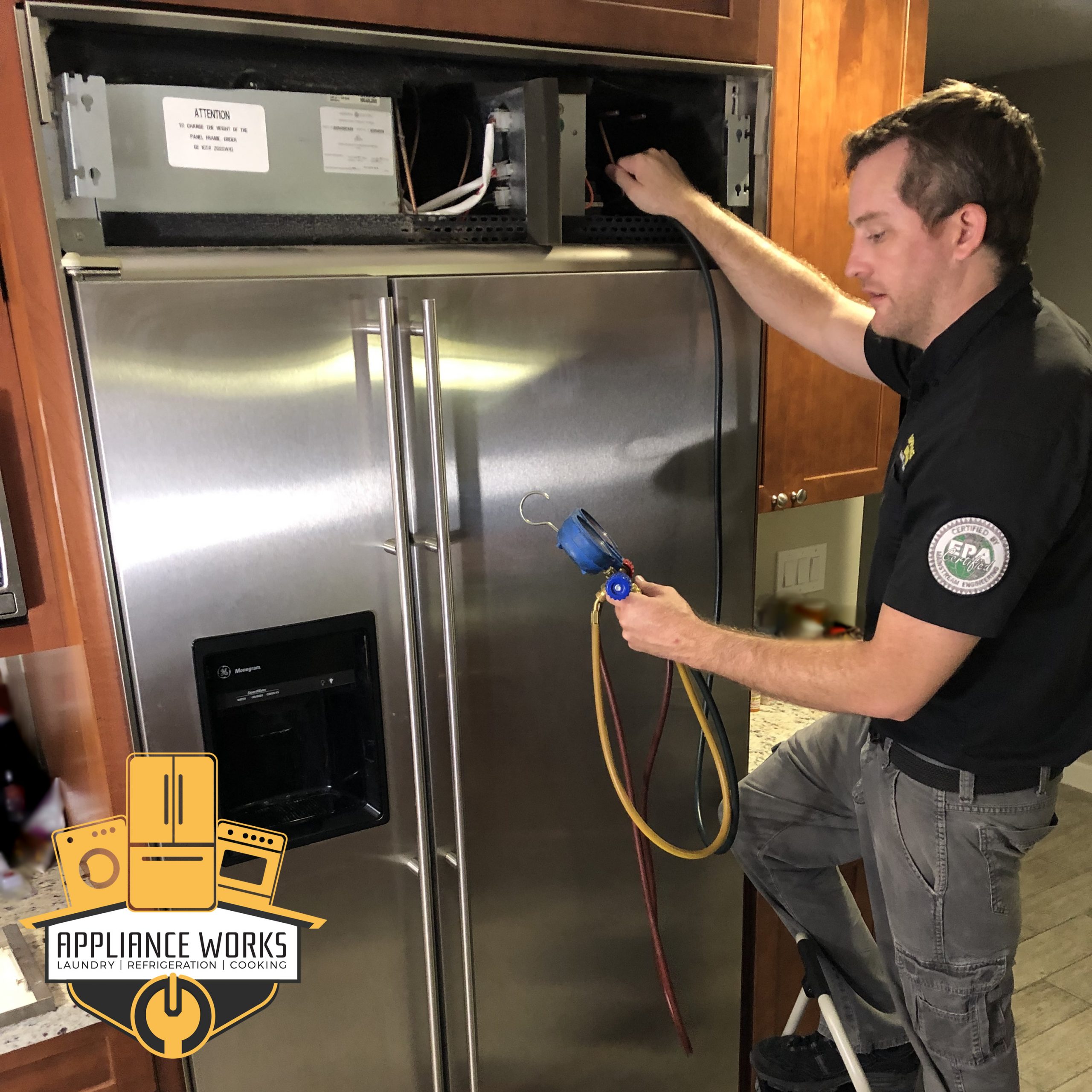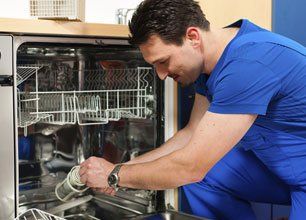Important Tips for Effective Ref Fixing to Extend Appliance Lifespan
When it comes to your fridge, correct fixing and maintenance are important for durability. Comprehending typical issues and knowing when to act can make all the distinction.
Recognizing Usual Refrigerator Issues
Fridges are essential in keeping your food fresh, but they can come across a series of common troubles that interrupt their efficiency. One regular problem is poor air conditioning. If you observe food spoiling quicker than usual, inspect the thermostat setups or take into consideration if the door seals are harmed. An additional usual trouble is too much noise, which could show a malfunctioning compressor or a falling short follower. You may also experience water pooling inside or beneath the fridge; this typically results from a blocked defrost drainpipe or a faulty water line. Additionally, if your refrigerator's light isn't working, it might be a basic bulb issue or an issue with the door button. Ultimately, ice accumulation in the fridge freezer can impede air movement and cooling down performance. Identifying these problems early can save you time and cash in repair work, guaranteeing your refrigerator runs smoothly and effectively.
Routine Maintenance Practices
To keep your appliances running smoothly, you need to stay on top of regular upkeep practices. Clean the condenser coils, inspect the door seals, and check the temperature setups to ensure peak efficiency. These simple tasks can conserve you time and money on repair work down the line.
Clean Condenser Coils Frequently
Cleaning your condenser coils regularly can greatly improve your device's efficiency. Dust and dirt build up on these coils over time, creating your device to function tougher and take in more energy. To maintain them clean, disconnect your device and carefully eliminate any protective covers.
Inspect Door Seals
3 easy steps can help you guarantee your appliance's door seals are in excellent problem. Second, clean the seals utilizing warm, soapy water to remove any type of debris or gunk. By complying with these steps, you'll preserve your device's effectiveness and durability, saving you money on energy bills and repairs in the long run.
Monitor Temperature Level Settings
Routinely checking your appliance's temperature level settings is necessary for best performance and performance. Utilize a thermometer to inspect these setups routinely, specifically after major adjustments, like moving your home appliance or readjusting the thermostat. By remaining proactive regarding temperature level surveillance, you'll guarantee your devices run smoothly and last much longer.
Repairing Cooling Problems
When your fridge isn't cooling appropriately, it can bring about spoiled food and squandered cash, so dealing with the concern promptly is important. Begin by checking the temperature level setups to verify they're at the recommended levels, generally around 37 ° F for the fridge and 0 ° F for the fridge freezer. If the settings are appropriate, evaluate the door seals for any type of gaps or damage; a faulty seal can enable warm air to go into.
Following, check out the vents inside the fridge and fridge freezer. Validate they're not blocked by food items, as this can disrupt airflow. Listen for the compressor; if it's not running or making unusual sounds, it might require attention. Finally, check the condenser coils, usually located at the back or base of the unit. Dust and debris can accumulate, causing cooling problems. Clean them with a vacuum or brush to optimize efficiency. If troubles persist, it could be time to call a specialist.
Taking Care Of Water Leakage and Ice Accumulation
If you're managing water leak or ice accumulation in your home appliance, it's important to determine the source of the issue. By determining where the water is originating from, you can avoid further issues and stay clear of expensive repair work. Allow's explore some efficient methods to take on these usual troubles.
Determine Leakage Sources
Just how can you efficiently determine the sources of water leak and ice build-up in your appliances? Begin by checking the seals and gaskets on your fridge and fridge freezer doors. By methodically checking these locations, you'll pinpoint the source of the trouble, permitting you to take the necessary steps to fix it and extend your device's life-span.
Prevent Ice Formation
To avoid ice formation in your home appliances, beginning by validating the temperature level setups are appropriate. If your refrigerator or fridge freezer is as well chilly, it can cause extreme ice build-up. Examine the door seals frequently; damaged seals can allow warm air in, triggering condensation and ice formation.
Keep the appliance well-ventilated and avoid overcrowding, as this can block air movement - Dependable Refrigeration & Appliance Repair Service, Oro Valley, AZ 85755. Also, consistently thaw your fridge freezer if it does not have an automated defrost function.
If you see water leakage, determine and take care of any type of obstructed drain holes, as they can add to ice build-up. Ultimately, clean the coils and verify they're working appropriately to maintain peak efficiency. Taking these actions will assist extend your device's life expectancy and performance.
Resolving Noisy Fridge Appears
While it might appear disconcerting, a noisy fridge typically signifies minor issues instead than major malfunctions. Typical culprits consist of the compressor, followers, and water lines.
Following, look for loose products inside. In some cases, containers or racks can rattle, developing unwanted noise. Tighten or reposition them Recommended Reading to eliminate the noises.
If you observe a clicking sound, it might be the defrost timer. This is normally harmless however might show it requires examination.
Finally, verify your refrigerator is level. An unbalanced home appliance can create vibrations and noise. Utilize a level to inspect, and readjust the feet if required. Addressing these issues promptly can help maintain your fridge's efficiency and lengthen its life-span.
When to Change Parts vs. Full Substitute

Consider the price of repair services versus the device's worth. Furthermore, if you observe ongoing troubles that keep persisting, it's an indicator that your appliance has actually gotten to the end of its life.
Recognizing When to Call an Expert
Just how can you inform when it's time to call an expert for home appliance repair work? If you discover uncommon noises, smells, or leakages, it's a clear signal that something's incorrect. Do not overlook these indicators; they frequently indicate deeper issues. If your device quits working altogether or often trips circuit breakers, it's another warning.
You need to likewise consider your own convenience degree with repairs. If you're uncertain concerning identifying the problem or lack the right tools, it's ideal to connect for help. Keep in mind, trying challenging fixings can bring about more damages and even safety and security dangers.

Regularly Asked Concerns
Exactly how Commonly Should I Clean the Refrigerator Coils?
You should clean your fridge coils every six months. This aids maintain efficiency and prevents getting too hot. If you discover extreme dust or pet hair, tidy them more frequently to guarantee your refrigerator runs efficiently.

Can I Make Use Of Vinegar for Cleansing My Fridge?
Yes, you can use vinegar to cleanse your fridge! It's an exceptional all-natural cleanser that removes smells and discolorations. Refrigerator repair experts Dependable Refrigeration & Appliance Repair. Simply blend it with water, apply it to surface areas, and wipe down for a fresh, tidy fridge
What Temperature Should My Refrigerator Be Ready To?
You must establish your fridge to 37 ° F(3 ° C) for ideal food preservation. This temperature maintains your food fresh while protecting against wasting, guaranteeing your grocery stores last longer and minimizing waste. It's a simple change you can make!
Does a Fridge Required to Be Leveled?
Yes, your refrigerator requires to be leveled. If it's irregular, it can impact cooling effectiveness and trigger excess sound. Inspect the progressing legs and change them to ensure appropriate balance for perfect performance.
How Can I Reduce Fridge Power Consumption?
To decrease your refrigerator's energy intake, maintain it clean and well-ventilated, check door seals for leakages, established the temperature between 35-38 ° F, and avoid overwhelming it. These actions can significantly reduce your energy expenses.
Comments on “Troubleshooting Tips from Refrigerator repair experts Dependable Refrigeration & Appliance Repair You Can Try Today”